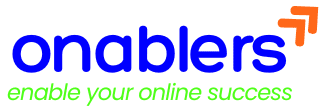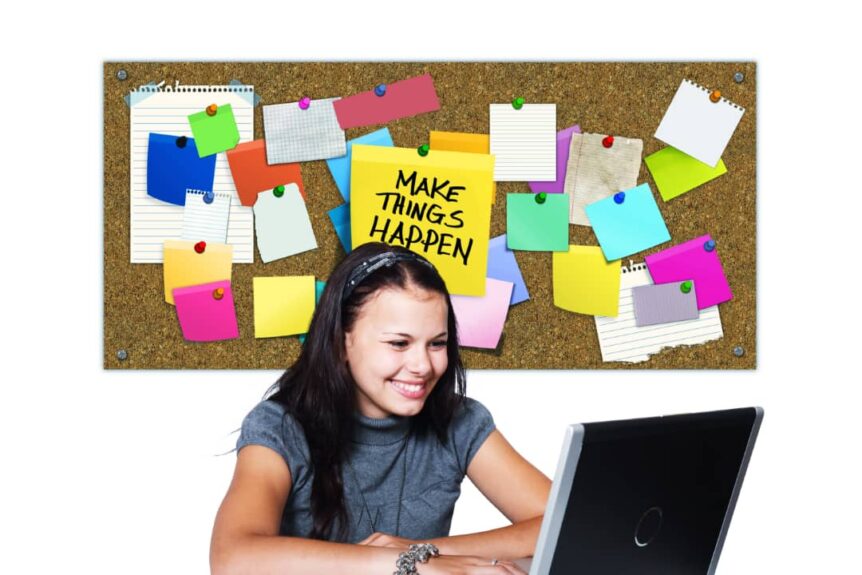Heads up! This post may contain affiliate links. If you click through and make a purchase, I may earn a small commission — at no extra cost to you. I only recommend tools and products I truly believe in. Learn more here
Here’s a shocking truth: 95% of online businesses fail within their first year – but it’s not because of bad products, poor marketing, or lack of funding. The real culprit? Mindset.
I’ve witnessed countless talented individuals with brilliant business ideas crash and burn, while others with average concepts build million-dollar empires. What’s the difference?
It all comes down to entrepreneurial mindset development. Your thoughts, beliefs, and mental frameworks determine whether you’ll push through the inevitable challenges or give up at the first sign of difficulty.
As someone who is transitioning from healthcare into digital entrepreneurship while building ONABLERS, I can tell you with absolute certainty: your mindset is your most valuable business asset!
In this comprehensive guide, you’ll discover exactly how to develop the unshakeable entrepreneurial mindset that transforms ordinary people into extraordinary online business owners.
Ready to unlock the mental keys to your success?
What is Entrepreneurial Mindset? (And Why It’s Your Secret Weapon for Online Success)
Look, I’m gonna be straight with you – when I first heard about “entrepreneurial mindset” while still working my day job in healthcare, I thought it was just some fancy business jargon.
Boy, was I wrong! After spending evenings and weekends building my first online ventures while juggling hospital responsibilities, I learned this lesson the hard way.
An entrepreneurial mindset is essentially how you approach problems, opportunities, and challenges as a business owner. It’s the difference between seeing a setback as a dead end versus seeing it as valuable feedback.
When my first attempt at creating an online website for blogging in a spiritual niche failed spectacularly – I spent three months building something that no one knew about, as I did no marketing effort around it – I was devastated.
I blamed my lack of business education, my healthcare background, and even my full-time job. But the real issue was my fixed mindset – I expected everything to work perfectly from day one.
The research backs this up too. Studies show that entrepreneurs with a growth mindset are 34% more likely to achieve long-term success compared to those with fixed thinking patterns.
Carol Dweck’s groundbreaking work on mindset psychology reveals that your beliefs about your abilities directly impact your business performance. Pretty wild, right?
“The view you adopt for yourself profoundly affects the way you lead your life” Carol Dweck
“The view you adopt for yourself profoundly affects the way you lead your life” Carol Dweck
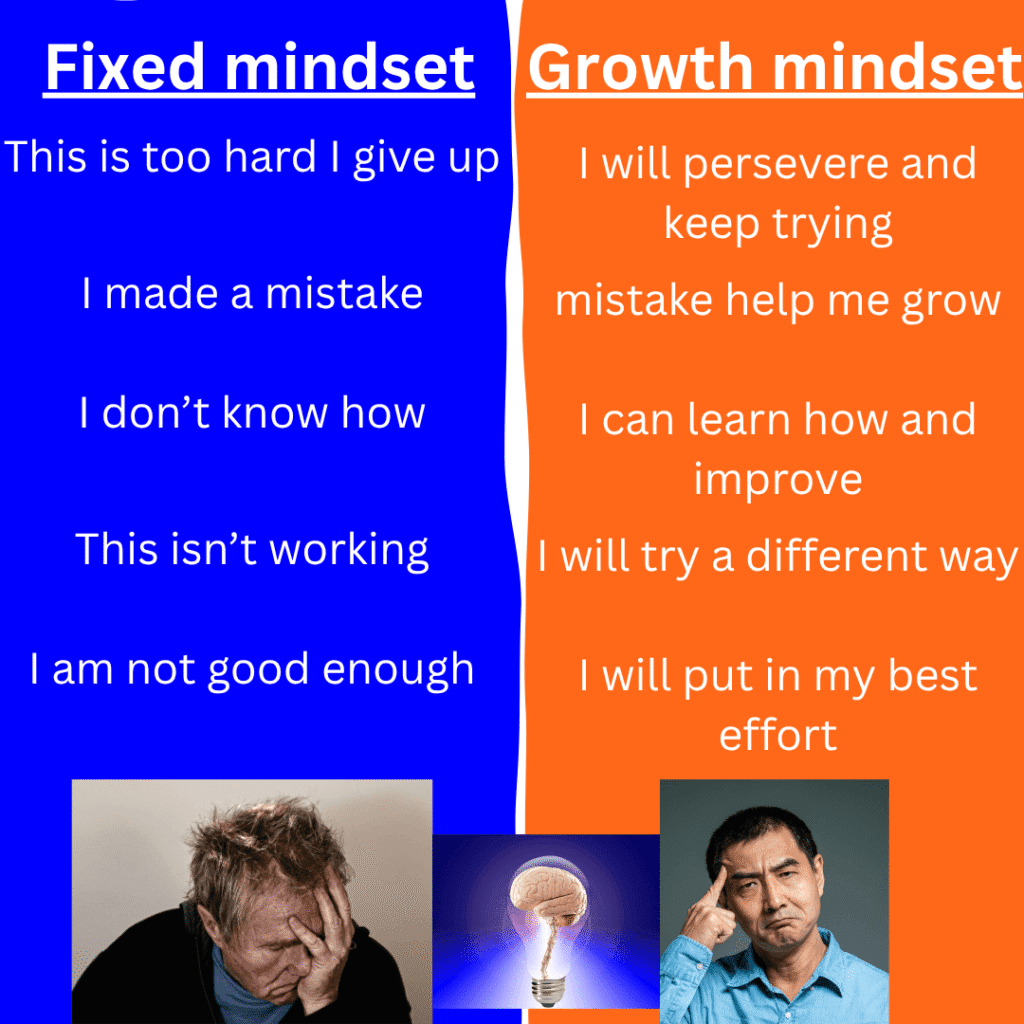
Here’s what I wish someone had told me when I was starting my first online business attempt while working 60-hour weeks in healthcare: entrepreneurial thinking isn’t about being fearless or having all the answers. It’s about being comfortable with uncertainty and viewing failures as stepping stones rather than roadblocks.
When you develop this mental framework, you start approaching business challenges differently. Instead of asking “Why is this happening to me?” you ask “What can I learn from this?”
The core components include risk tolerance, creative problem-solving, long-term vision, and resilience. But here’s the kicker – these aren’t personality traits you’re born with. They’re skills you can develop through practice and intentional effort.
I’ve seen fellow healthcare professionals become dynamic online entrepreneurs simply by shifting their mental approach to business challenges.
Most people think entrepreneurial mindset means taking huge risks and being naturally confident. That’s total BS. It’s actually about making calculated decisions based on available information and being willing to adjust course when needed.
My biggest breakthrough came when I stopped trying to predict the future and started focusing on adapting quickly to whatever happened – whether that was a failed product launch or a sudden algorithm change on social media.
The 7 Core Pillars of a Winning Entrepreneurial Mindset
After years of trial and error (and plenty of embarrassing mistakes while trying various online business ventures), I’ve identified seven pillars that separate successful online entrepreneurs from those who struggle. Trust me, I learned about each of these the hard way – usually by doing the exact opposite first!
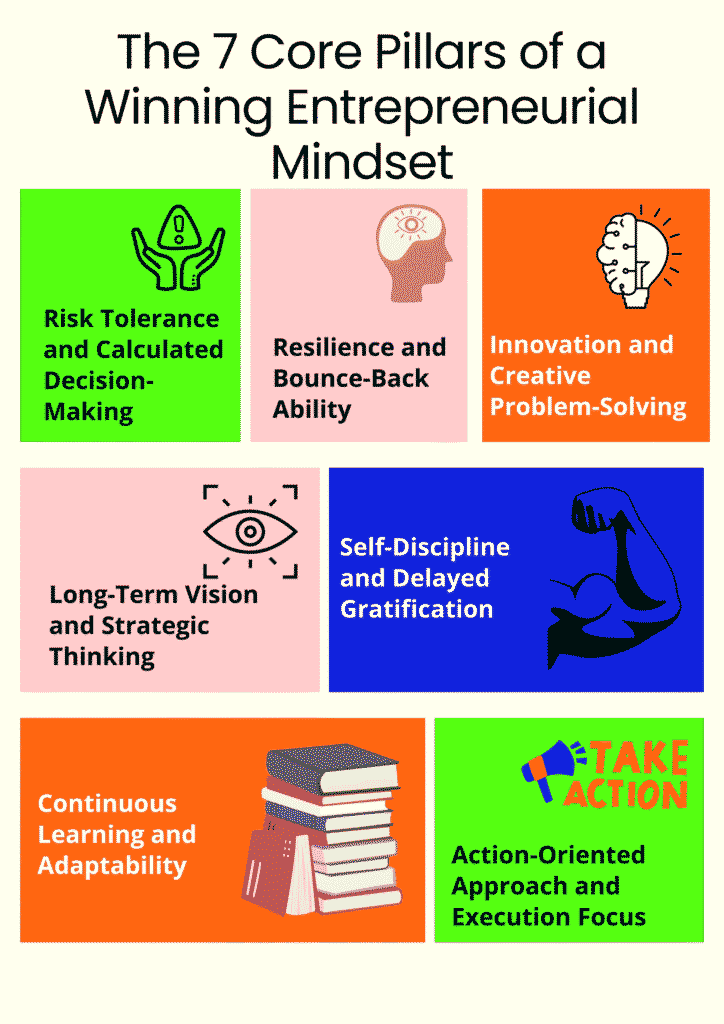
Risk Tolerance and Calculated Decision-Making is the first pillar, and man, did I mess this up initially. Coming from healthcare, where everything is evidence-based and protocols are sacred, I used to think being an entrepreneur meant betting everything on wild hunches.
One of my investment attempts involved me investing money I couldn’t afford to lose into a fancy course platform I’d never tested. Spoiler alert: it flopped! Real risk tolerance isn’t about being reckless – it’s about making informed decisions when you don’t have perfect information.
Now I use frameworks like the 10-10-10 rule: How will I feel about this decision in 10 minutes, 10 months, and 10 years?
Resilience and Bounce-Back Ability became my lifeline when my third attempt at monetizing a YouTube channel failed spectacularly. I remember sitting in my car after a particularly brutal shift at the hospital, wondering if I was cut out for entrepreneurship.
The difference between successful entrepreneurs and everyone else isn’t that they don’t fail – it’s how quickly they recover and what they learn. I started treating failures like expensive education rather than personal defeats. Game changer!
Innovation and Creative Problem-Solving sound fancy, but it’s really about finding unique solutions to common problems.
When I couldn’t afford expensive marketing tools for ONABLERS, I created my own lead generation system using free AI tools and some creative thinking. Sometimes constraints force the best innovations – my healthcare background actually helped because we’re trained to work with limited resources.
Long-Term Vision and Strategic Thinking were probably my weakest areas for years. I was always chasing the next shiny object – first blogging coupled with affiliate marketing, then course creation, content for YouTube, dropshipping – instead of building something sustainable.
Learning to think in systems rather than tactics transformed everything. Now I ask myself: “Will this decision help my current business in five years?” If not, I probably don’t need to stress about it.
Self-Discipline and Delayed Gratification – oof, this one hurt to learn! I used to reward myself for starting projects instead of finishing them. Big mistake.
When you’re working a full-time job and building a business on the side, self-discipline becomes non-negotiable. I literally had to remove social media apps from my phone during my focused work hours after dinner.
Continuous Learning and Adaptability keep you relevant in our rapidly changing digital world. The AI tools I was using a year ago in my business are completely different now.
Successful entrepreneurs become learning machines, constantly updating their knowledge and skills. My healthcare background actually helped here – we’re used to continuous education and staying current with new developments.
Action-Oriented Approach and Execution Focus separate dreamers from doers. I know plenty of people with brilliant business ideas who never execute them. Meanwhile, others with mediocre concepts build successful businesses through consistent action.
Perfect planning is the enemy of good execution – something I learned when I spent three months planning the “perfect” launch of my first website instead of just starting.
Identifying and Overcoming Limiting Beliefs That Sabotage Online Entrepreneurs
Oh boy, where do I even start with limiting beliefs? I had more mental blocks than a traffic jam in downtown LA! The crazy thing is, I didn’t even realize how much my own thoughts were sabotaging my success until I started paying attention to them while building ONABLERS.
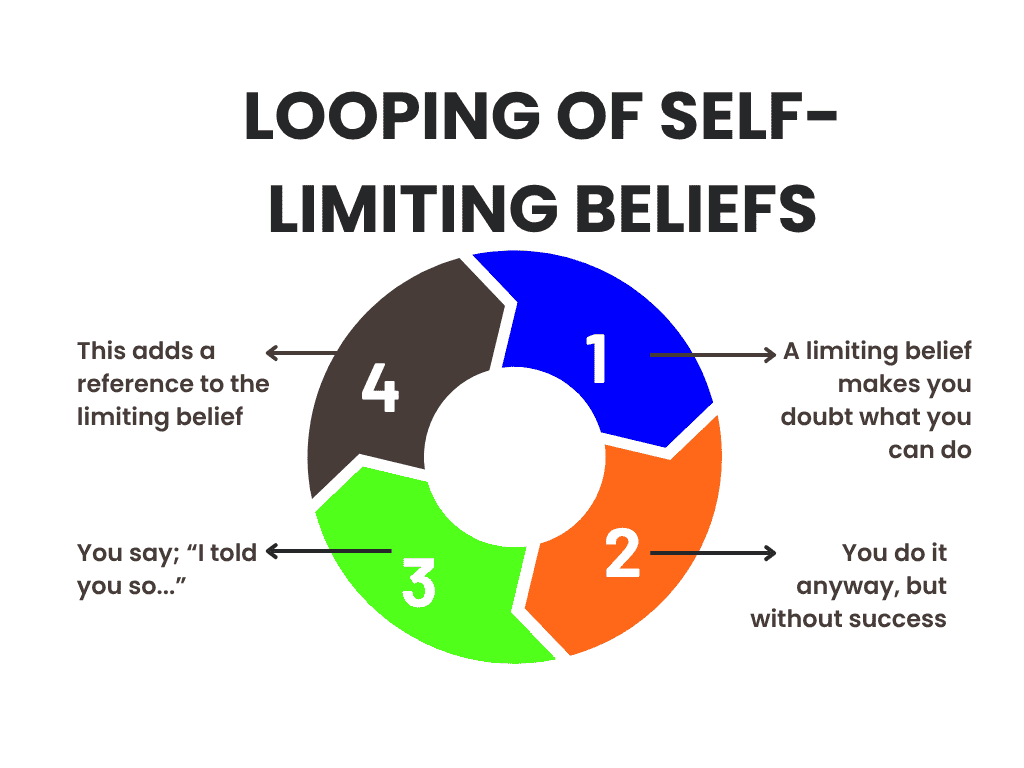
The most common limiting belief I had (and see in other beginners) is “I’m not smart enough to run a successful business because I don’t have a business background.” This one haunted me for months.
Every time I’d see another entrepreneur’s success story, I’d think they must have some special business knowledge I didn’t have. Complete nonsense! What I learned is that business success has way more to do with persistence and problem-solving than formal education.
The psychology behind self-sabotage is both fascinating and frustrating. Your subconscious mind is trying to keep you safe by maintaining the status quo.
When I started a YouTube channel, it pushed me beyond my comfort zone and triggered all sorts of strange behaviors. I remember one of my videos gaining unexpected popularity, and in a moment of fear, I decided to take it down, convinced that I wouldn’t be able to produce anything as good again. My mind simply couldn’t handle the pressure of success!
Impostor syndrome hits career-changers especially hard. Even as ONABLERS is helping thousands of beginners, I still sometimes feel like I am just winging it and everyone would figure out I am just a healthcare worker pretending to be a business expert. The secret? Everyone feels this way! The most successful people are just better at moving forward despite the feeling.
Money mindset blocks were huge for me. Growing up in a family where we valued service over profit, I felt uncomfortable charging for my knowledge.
These beliefs made me uncomfortable with business success. I had to literally reprogram my thoughts about wealth and value creation. Now I see money as a tool for helping more people through ONABLERS.
Fear of failure versus fear of success is a weird paradox. I thought I was only afraid of failing until I realized I was equally terrified of succeeding.
Success meant potentially leaving my stable healthcare career, increased responsibility, and higher expectations. Both fears can paralyze you if you don’t address them directly.
The technique that worked best for me was cognitive restructuring – basically catching negative thoughts and reframing them.
Instead of “I’m just a healthcare worker, what do I know about business?” I’d think “My unique perspective helps me serve beginners better than traditional business experts.” It sounds simple, but it takes consistent practice to rewire those neural pathways.
Building Unshakeable Confidence in Your Online Business Journey
Confidence in business isn’t about feeling amazing all the time – it’s about trusting yourself to handle whatever comes up. And let me tell you, I definitely didn’t start out feeling confident! My first year attempt at building a website while working full-time was basically an extended anxiety attack with occasional moments of false bravado.
The biggest confidence killer for most online entrepreneurs is comparison. Social media makes it look like everyone else has their stuff figured out while you’re over here trying to remember if you scheduled that Instagram post.

I used to spend hours scrolling through other entrepreneurs’ highlight reels, feeling completely inadequate. Here’s what I learned: everyone’s struggling with something, they’re just not posting about it.
Real entrepreneurial confidence comes from competence, not positive thinking. You build it by getting good at solving problems and delivering results. (Make sure also to read: How to Start an Online Business from Scratch in 2025 (Even If You’re Broke and Confused)
When I first started offering AI tool tutorials, I was terrified people would realize I was still learning myself. But after successfully helping dozens of beginners implement these tools, that fear disappeared. Experience is the ultimate confidence builder.
One mistake I made early on was seeking validation from my healthcare colleagues who didn’t understand online business. I’d run every business decision by them, looking for their approval.
The problem is, most people don’t understand digital entrepreneurship and will project their own fears onto your dreams. I learned to trust my own judgment and seek advice only from people who’d achieved what I wanted to achieve.
Dealing with criticism and negative feedback was probably my biggest confidence challenge. My first comprehensive AI guide got some harsh comments from people saying a healthcare worker had no business teaching technology.
I remember feeling like a complete fraud. But here’s the thing – criticism often contains valuable insights if you can separate the emotion from the information. Now I actually seek out constructive feedback because it helps ONABLERS serve beginners better.
Building confidence through small wins was a game-changer for me. Instead of setting massive goals that felt overwhelming, I started celebrating small achievements. Got my first email subscriber? Celebration! Published my first blog post without major typos? Party time! These little victories accumulate and create genuine self-assurance.
Creating content and building a personal brand still terrifies me. That’s why I’ve chosen to use the pen name Leo Vectro for Onablers, allowing me to focus more on you rather than myself. I hope to overcome this fear one day and finally reveal the real entrepreneur behind the brand.
The confidence-building technique that helped me most was keeping a “wins journal.” Every day, I’d write down three things that went well with ONABLERS, no matter how small.
This trained my brain to notice successes instead of only focusing on problems. Your mind will find evidence for whatever you’re looking for – might as well look for reasons to feel confident!
Developing Mental Resilience: How to Bounce Back from Online Business Setbacks
Resilience isn’t about being tough all the time – it’s about knowing how to recover when life knocks you down. And trust me, online business will knock you down! Between my healthcare responsibilities and building online businesses, I’ve been knocked down so many times I should probably invest in knee pads.
My lowest point came after spending several months on what I thought would be a successful YouTube channel, only to have it flop spectacularly.
I dedicated countless evenings to creating content, sacrificing sleep and social time in the process. When it was completely ignored by my audience, I spent time wallowing in self-pity, indulging in way too much ice cream, and questioning every decision I had made about that channel. But then something clicked – I realized that this setback was merely information, not a verdict on my worth as an entrepreneur.
The lessons I learned from that experience are now shaping my approach as I build ONABLERS, helping me connect more authentically with my audience and avoid the pitfalls of my past.
The psychology of resilience is all about how you interpret events. Resilient people see setbacks as temporary, specific, and solvable.
Non-resilient people see them as permanent, and personal. When my YouTube channel flopped, my first thought was, “I’m terrible at understanding what my audience wants, and this always happens to me.” But then I caught myself and reframed it: “This specific approach didn’t resonate, and I can use this experience to gain a better understanding of my audience’s needs.”
Emotional regulation skills are crucial for entrepreneurs because our income is directly tied to our decisions. When you’re stressed, angry, or anxious, you make terrible business choices.
I learned this lesson when I fired off a frustrated email to someone who criticized my action and potentially burned a valuable relationship. Now I have a 24-hour rule – I never send important emails when I’m emotional.
Stress management became non-negotiable after working 12-hour hospital shifts and then trying to build ONABLERS until 2 AM. My body started showing signs of chronic stress, and I realized this wasn’t sustainable.
I started with simple techniques like deep breathing exercises during stressful moments. Sounds basic, but it works! I also discovered that regular exercise isn’t just good for your body – it’s essential for mental resilience.
Learning from failure and rejection is an art form. Each “no” teaches you something about your offer, your market, or your approach.
I keep a “failure file” for ONABLERS where I document what went wrong and what I learned. This might sound masochistic, but it’s actually incredibly valuable data for improving your business.
Creating support systems was something I resisted for way too long. I thought asking for help was a sign of weakness – maybe it’s the healthcare hero complex! Wrong! Having a network of other entrepreneurs who understand your challenges is invaluable.
When I’m having a rough week with ONABLERS, I can text my entrepreneur buddies and they get it. They don’t try to convince me to stick with my “stable healthcare job” – they remind me that tough times are part of the journey.
Mindfulness and meditation practices might sound woo-woo, but they’re backed by solid science. Even five minutes of daily meditation improves your ability to handle stress and make clear decisions.
I use the Calm app because I’m way too scattered to meditate without guidance. The key is consistency – better to meditate for five minutes daily than for an hour once a week.
“Resilience isn’t about being tough all the time – it’s about knowing how to recover when life knocks you down” Leo Vectro.
“Resilience isn’t about being tough all the time – it’s about knowing how to recover when life knocks you down” Leo Vectro.
Cultivating Innovation and Creative Problem-Solving Skills
Innovation isn’t about having brilliant eureka moments – it’s about systematically approaching problems from different angles. Most of my best ideas for ONABLERS came from being frustrated with existing solutions and wondering if there was a better way to help beginners.
Breaking out of conventional thinking patterns is harder than it sounds because your brain loves efficiency. It wants to use the same neural pathways it’s always used.
Coming from healthcare, I was used to following established protocols. I had to force myself to break patterns by changing my physical environment when I needed to solve problems.
Sometimes I’d work on ONABLERS from a coffee shop instead of my home office, other times I’d take walking meetings with myself. Physical movement literally helps your brain make new connections.
Design thinking principles transformed how I approach challenges with ONABLERS. The process is simple: empathize with your audience, define the problem clearly, brainstorm multiple solutions, prototype quickly, and test everything. I used to spend months planning perfect content. Now I create rough drafts and let audience feedback guide improvements.
Cross-pollination from my healthcare experience turned out to be invaluable. Some of my best ONABLERS strategies came from applying medical principles to business education.
I learned about patient education from nursing, systems thinking from hospital administration, and evidence-based practice from research. Innovation often happens at the intersection of different disciplines.
Building creative confidence was tough because I’d convinced myself I wasn’t a “creative person” – I was a healthcare professional! That’s another limiting belief that held me back.
Creativity isn’t about being artistic – it’s about generating useful solutions to problems. Every entrepreneur is creative by necessity because you’re constantly figuring out how to turn ideas into reality.
The brainstorming technique that works best for me is writing down every possible solution, no matter how ridiculous. Quantity over quality in the initial phase.
Some of my worst ideas for ONABLERS led to breakthrough insights when I pushed them to their logical extreme. The key is separating idea generation from idea evaluation – don’t judge while you’re creating.
I also learned to embrace experimentation over perfection. One of my most successful blog posts on ONABLERS began as a rough draft I quickly wrote during a lunch break. It wasn’t polished, but it addressed a real challenge faced by beginners. My audience didn’t mind that it wasn’t flawless – they appreciated that it provided a practical solution.
The Growth Mindset Advantage: Continuous Learning and Adaptation
The moment you stop learning in business is the moment you start becoming irrelevant. This hit me hard when AI tools exploded in popularity, and I realized I needed to completely update my approach for ONABLERS.

I had become comfortable with my existing knowledge and stopped paying attention to emerging trends, especially after my first online initiative with a website that flopped before these tools were even available.
Lifelong learning for entrepreneurs isn’t about getting more degrees – it’s about staying curious and adaptable. Working in healthcare already taught me this lesson – medical knowledge changes constantly, and you have to keep up or risk harming patients.
I apply the same mindset to business learning, setting aside at least an hour every day for learning something new, whether it’s reading industry blogs, watching tutorial videos, or listening to podcasts.
My learning system evolved over time. I used to try to learn everything about everything, which was overwhelming and ineffective.
Now I focus on three core areas: skills that directly impact ONABLERS, emerging trends in online business, and one completely unrelated topic for creative inspiration.
This year I’m diving deeper into AI tools, studying conversion optimization, and learning about cognitive psychology. The psychology knowledge actually helps me understand how beginners learn best.
Staying current with industry trends requires multiple information sources because any single source has blind spots.
I follow industry leaders on social media, subscribe to relevant newsletters, attend virtual conferences, and participate in online communities.
The key is finding signal in the noise – not every trend matters for your specific business or audience.
Embracing feedback and constructive criticism was probably the hardest growth mindset skill for me to develop. My ego really wanted everyone to love everything I created online. But feedback is pure gold for business improvement.
I started actively seeking criticism by asking my audience, “What’s one thing I could explain better?” The answers were sometimes uncomfortable but always valuable.
Building learning goals versus performance goals changed everything for me. Instead of setting goals like “get 10,000 subscribers this year,” I started setting goals like “master video content creation” or “improve my email marketing skills.” Learning goals are within your control and lead to better performance over time.
The concept of deliberate practice applies to business skills just like medical skills. You can’t just do something repeatedly and expect to improve – you need focused practice with immediate feedback.
When I wanted to get better at explaining complex topics simply, I recorded myself teaching concepts and analyzed what worked and what didn’t. Uncomfortable but effective!
From Vision to Reality: Strategic Thinking and Long-Term Planning
Strategic thinking sounds intimidating, but it’s just zooming out and asking, “What’s really happening here?” instead of getting caught up in daily chaos.
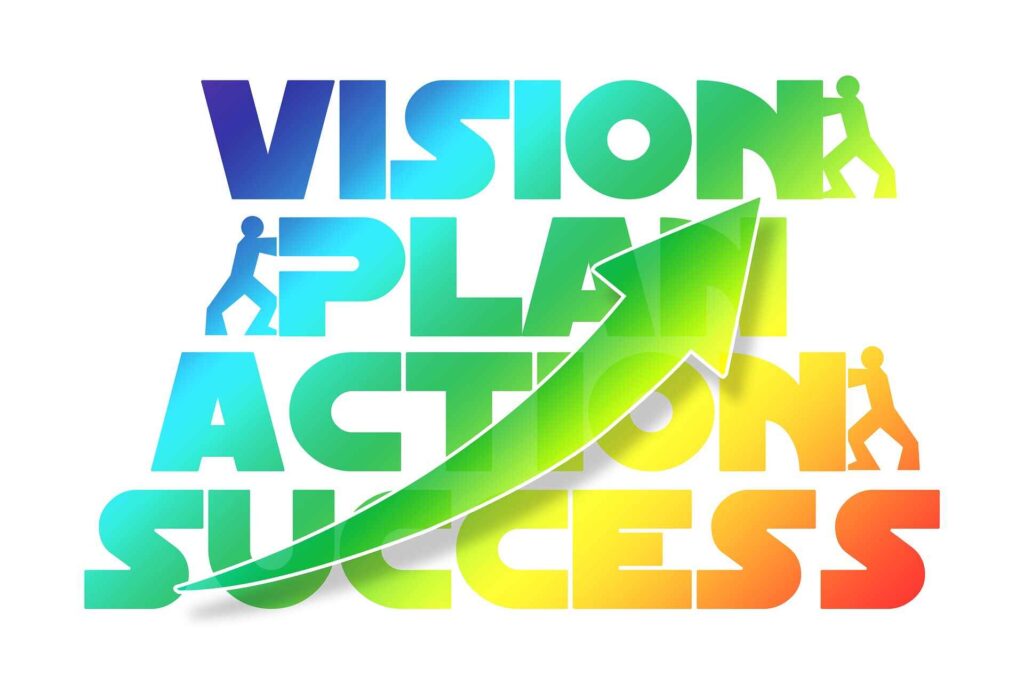
I used to be completely reactive in my online business side hustle, putting out fires and chasing opportunities without any bigger picture. This led to a lot of wasted effort and missed opportunities.
Developing entrepreneurial vision started with getting clear on why I was building ONABLERS in the first place. Was it just about extra income? Freedom? Impact?
For me, it was about creating something meaningful that helped beginners succeed while having flexibility to potentially leave healthcare someday.
Once I clarified my “why,” every business decision became easier because I had criteria for evaluation.
My vision exercise involves imagining my ideal day five years from now. What am I working on? Who am I helping? What kind of impact is ONABLERS having? This isn’t just fantasy – it’s strategic planning.
When you can clearly picture your destination, you can work backward to figure out the steps needed to get there.
Strategic planning frameworks saved me from constantly changing directions with ONABLERS.
I use a simple quarterly planning process: review what worked and what didn’t in the previous quarter, identify the three most important objectives for the next quarter, and break those down into monthly and weekly actions.
Nothing fancy, but it keeps me focused on what matters for helping beginners succeed.
Balancing short-term actions with long-term goals is tricky because immediate needs often feel more urgent.
I learned to ask myself two questions for every ONABLERS decision: “Will this help my audience this month?” and “Will this help build something sustainable in five years?” The best decisions score well on both timeframes.
Scenario planning became crucial after getting blindsided by unexpected events several times. Now I regularly ask “What if?” questions about ONABLERS.
What if AI tools become so easy that beginners don’t need tutorials? What if a major platform changes its algorithm? What if my healthcare career demands more time? Having contingency plans reduces anxiety and improves decision-making under pressure.
Systems thinking has transformed how I approach challenges with ONABLERS. Instead of merely addressing individual issues, I focus on understanding the bigger picture.
As I create content for my new blog, I pay attention to how different topics interconnect and how they can collectively support beginners.
Recognizing that clarity is essential for new learners, I strive to develop a cohesive content strategy that guides my audience through a logical and engaging learning journey.
Decision-making frameworks help when you’re dealing with uncertainty, which is basically always in business.
I use a simple scoring system for major ONABLERS decisions: rate each option on criteria like alignment with mission, resource requirements, potential impact on beginners, and risk level. This removes some emotion from decision-making and helps me make more consistent choices.
Building patience for long-term success is probably the hardest strategic skill because everything in our culture emphasizes quick results.
Most meaningful business success takes years, not months. I had to constantly remind myself that building something sustainable like ONABLERS takes time and that shortcuts usually backfire in the long run.
Action-Oriented Mindset: Turning Ideas into Profitable Online Ventures
Ideas are worthless without execution. Harsh but true! I spent months thinking I was building a business because I had notebooks full of brilliant ideas for ONABLERS content. But until you actually create something and put it in front of your audience, you’re just daydreaming.
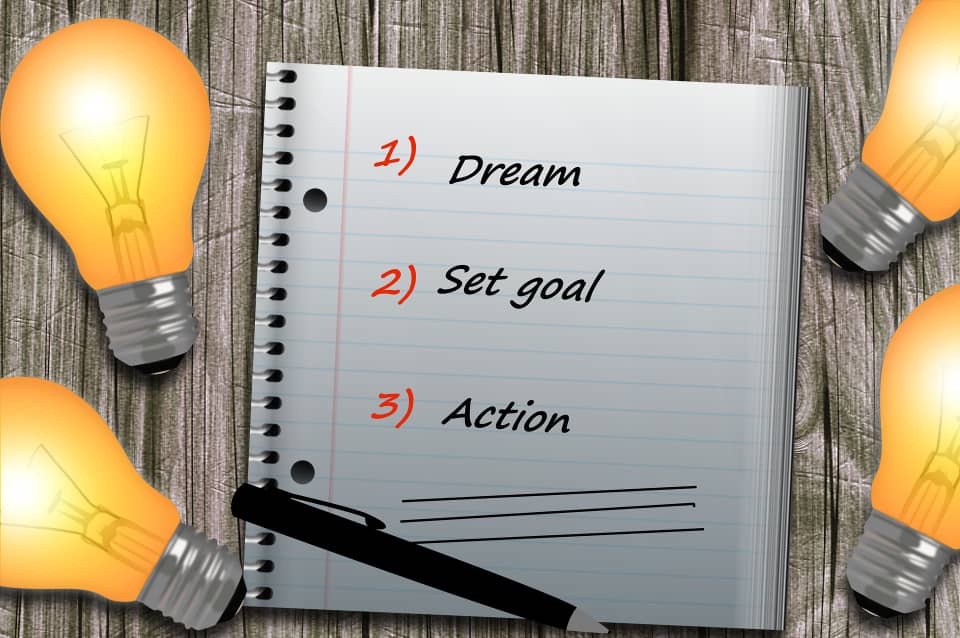
Overcoming analysis paralysis was my biggest execution challenge. I’d research and plan and research some more, convincing myself I was being thorough. Really, I was just scared to start because starting meant facing the possibility of failure. (Make sure also to read: Stuck with Too Many Ideas? How to Choose a Business idea to Start in 2025.)
The cure? Setting artificial deadlines and committing to launch regardless of the perfection level.
My breakthrough came when I gave myself just one week to launch my first AI tools guide. It wasn’t perfect – some screenshots were blurry, I had a few typos, and the formatting was basic. But it solved a real problem for beginners, and they loved it! That imperfect launch generated more positive feedback than months of planning had ever produced.
Building bias toward action means changing your default response to opportunities. Instead of “Let me research this more,” your first instinct becomes “How can I test this quickly?” This shift in mindset accelerates everything because you’re gathering real data instead of theoretical opinions.
Creating accountability systems keeps you moving when motivation wanes. I share my ONABLERS goals with my wife and my university postgraduate daughter, who serve as my accountability partners.
Their support and encouragement help keep me focused and motivated. Knowing that they will check in with me about my commitments makes me more likely to follow through on my plans.
Breaking large goals into manageable actions prevents overwhelm and creates momentum. When I decided to write my book, AI for Beginners, the project felt daunting. However, by breaking it down into smaller tasks like “write one chapter per week,” I made it achievable.
These small, consistent actions compound over time, leading to significant progress. I’m excited to share that the book is now ready for professional editing!
Time management and priority setting became critical as ONABLERS grew while I maintained my healthcare responsibilities.
I learned to distinguish between urgent and important tasks. Most urgent things aren’t important, and most important things aren’t urgent. I now use time blocking to protect my most productive hours for high-impact ONABLERS activities.
Building momentum through small wins is psychological rocket fuel for entrepreneurs. Every small victory builds confidence and creates positive feedback loops.
I celebrate completing weekly content goals just as much as hitting monthly subscriber targets because consistency in small things leads to big results.
The execution habit that changed everything for me was the “two-minute rule.” If something takes less than two minutes, I do it immediately instead of adding it to my ONABLERS to-do list. This prevents small tasks from accumulating into overwhelming backlogs and keeps my mind clear for bigger challenges.
Practical Exercises and Daily Habits for Mindset Development
Mindset development isn’t a one-time thing – it’s daily practice, like physical exercise. I learned this the hard way when I’d feel motivated after reading a business book, but then slip back into old patterns within a week. Lasting change requires consistent, intentional practice.
I wake up at 6:30 AM and start my day with morning meditation and a brief spiritual devotion. This is followed by listening to and visualizing a 10-minute mind movie I created, which describes my ideal life in the present tense, featuring AI-modified pictures of me enjoying the things I aspire to achieve.
After that, I write down three priorities for ONABLERS and three priorities for my professional healthcare work, and I review my goals.
I then dedicate 30 minutes to exercise, starting with a glass of water to hydrate. I continue listening to my mind movie while I work out, and afterward, I take a bath before heading to my healthcare job.
In addition, I practice intermittent fasting and generally skip breakfast, having my first meal at lunchtime. This routine helps me maintain focus and energy throughout the morning.
Journaling techniques for mindset growth evolved from random thoughts to structured reflection. I use three prompts every evening: What went well with ONABLERS today? What could I improve? What did I learn? This simple practice helps me process experiences and extract lessons instead of just moving to the next thing.
Goal-setting and progress tracking methods keep me focused on what matters for ONABLERS. I write goals in three timeframes: daily (what can I accomplish today?), weekly (what progress can I make this week?), and quarterly (what major objectives do I want to achieve?). This creates both urgency and perspective.
Reading and learning habits require discipline because it’s easy to get distracted by urgent tasks.
I try to read for at least 30 minutes daily (I wish I could say that I always do it, but the reality is that I am still struggling to keep this habit), focusing on books that directly apply to either my professional work or my current online challenges.
I also take notes and implement at least one idea from each book – knowledge without application is just entertainment.
Networking and relationship-building activities expanded my opportunities and reduced feelings of isolation.
I joined a couple of entrepreneur groups and attend virtual meetups regularly. Building genuine relationships with other business owners provides support, ideas, and occasionally, collaborations that benefit ONABLERS.
The habits that’s had the biggest impact are daily mind movie and weekly reflection sessions. Every Friday, I spend an hour reviewing the week: what worked for ONABLERS, what didn’t, what I learned, and what I want to focus on next week. This prevents me from just staying busy without making real progress toward helping more beginners succeed.
“Lasting change requires consistent, intentional practice.” Leo Vectro.
“Lasting change requires consistent, intentional practice.” Leo Vectro.
Measuring Your Mindset Progress: Key Indicators of Entrepreneurial Growth
Mindset development is intangible, which makes it hard to measure. But there are specific indicators that show you’re making progress. I track these for my ONABLERS journey because what gets measured gets improved, and mindset development is too important to leave to chance.
Self-assessment tools help me monitor my mental patterns and identify areas for improvement. I use a simple weekly scorecard rating myself on resilience, adaptability, action orientation, and learning mindset.

This isn’t about perfection – it’s about awareness and consistent improvement in how I approach ONABLERS challenges.
Behavioral indicators of mindset shifts are often more reliable than feelings. For example, I noticed I stopped procrastinating on difficult tasks like creating video content or reaching out to potential collaborators.
This behavior change indicated growing confidence and professional maturity, even when I didn’t feel particularly confident.
Performance metrics linked to mindset development include decision-making speed, recovery time from setbacks, and consistency of effort.
I track how long it takes me to bounce back from disappointments with ONABLERS and how quickly I make important business decisions. Both have improved significantly as my mindset has developed.
Feedback mechanisms from my audience, peers, and mentors provide external perspectives on my growth.
I ask trusted advisors, “What changes have you noticed in how I approach ONABLERS challenges?” Their observations often reveal progress I hadn’t noticed myself.
Celebrating milestones and recognizing growth is essential because mindset development is gradual. I keep a “growth journal” documenting mindset breakthroughs, like the first time I handled criticism without getting defensive or when I made a major decision about ONABLERS without second-guessing myself for weeks.
Identifying areas for continued development keeps me growing instead of getting complacent. Even after years of working on my mindset, I still struggle with certain areas. Perfectionism occasionally creeps back in, and I sometimes avoid tasks that feel outside my comfort zone.
Creating accountability measures includes sharing my mindset goals with mentors and tracking specific behaviors. For instance, when I wanted to become more action-oriented with ONABLERS, I tracked how many ideas I tested each month versus how many I just thought about.
The most reliable indicator of mindset progress is how I respond to unexpected challenges. Earlier in my ONABLERS journey, surprises would derail me for days. Now I can usually process setbacks, extract lessons, and adjust course within hours rather than weeks.
That resilience didn’t happen overnight – it’s the result of consistent mindset work while balancing my healthcare career and entrepreneurial aspirations.
Conclusion
Your entrepreneurial mindset isn’t just a nice-to-have – it’s the foundation upon which your entire online business success is built.
Every strategy, tactic, and tool in the world won’t help you if your mind isn’t wired for entrepreneurial success. The good news? Mindset is completely within your control and can be developed with consistent practice and dedication.
Remember, every successful online entrepreneur started exactly where you are now – with dreams, doubts, and a decision to grow beyond their current limitations.
The difference between those who make it and those who don’t isn’t talent, luck, or connections. It’s their commitment to developing the mental frameworks that support long-term success.
I’ve shared my mistakes, breakthroughs, and hard-won lessons from building ONABLERS while maintaining my healthcare career because I want you to avoid some of the mental traps that held me back for years.
Your mindset journey will be unique, but the principles remain the same: embrace growth over comfort, action over analysis, and learning over knowing.
Creating a mind movie and regularly watching and listening to it, along with engaging in weekly reflections, are key components of my mindset development experience.
This practice helps me visualize my goals and reinforces my commitment to personal and professional growth, ensuring that I stay aligned with my aspirations.
The seven pillars we discussed – risk tolerance, resilience, innovation, vision, discipline, continuous learning, and action orientation – aren’t destinations you reach once and forget about. They’re ongoing practices that require daily attention and development.
Some days you’ll feel like you’re crushing it, other days you’ll wonder if you have what it takes. Both are normal parts of the entrepreneurial journey.
Whether you’re building your own version of ONABLERS, starting a completely different online venture, or just beginning to explore entrepreneurship while working another career, remember that your unique background is an asset, not a limitation.
My healthcare experience didn’t disqualify me from business success – it gave me unique perspectives that help me serve beginners better.
Your mindset transformation starts today. Choose one exercise from this guide and commit to practicing it for the next 30 days.
Whether it’s morning journaling, daily visualization, or challenging a limiting belief, that single action will begin rewiring your brain for entrepreneurial success.
Your future self – and your online business – will thank you for making this investment in your most valuable asset: your mind.
I’d love to hear about your mindset development journey! What limiting beliefs are you working to overcome? Which of these strategies resonates most with your current challenges? Share your experiences in the comments below – your story might be exactly what another beginner entrepreneur needs to hear to keep pushing forward.
That’s what ONABLERS is all about: helping each other succeed in the world of online business.
